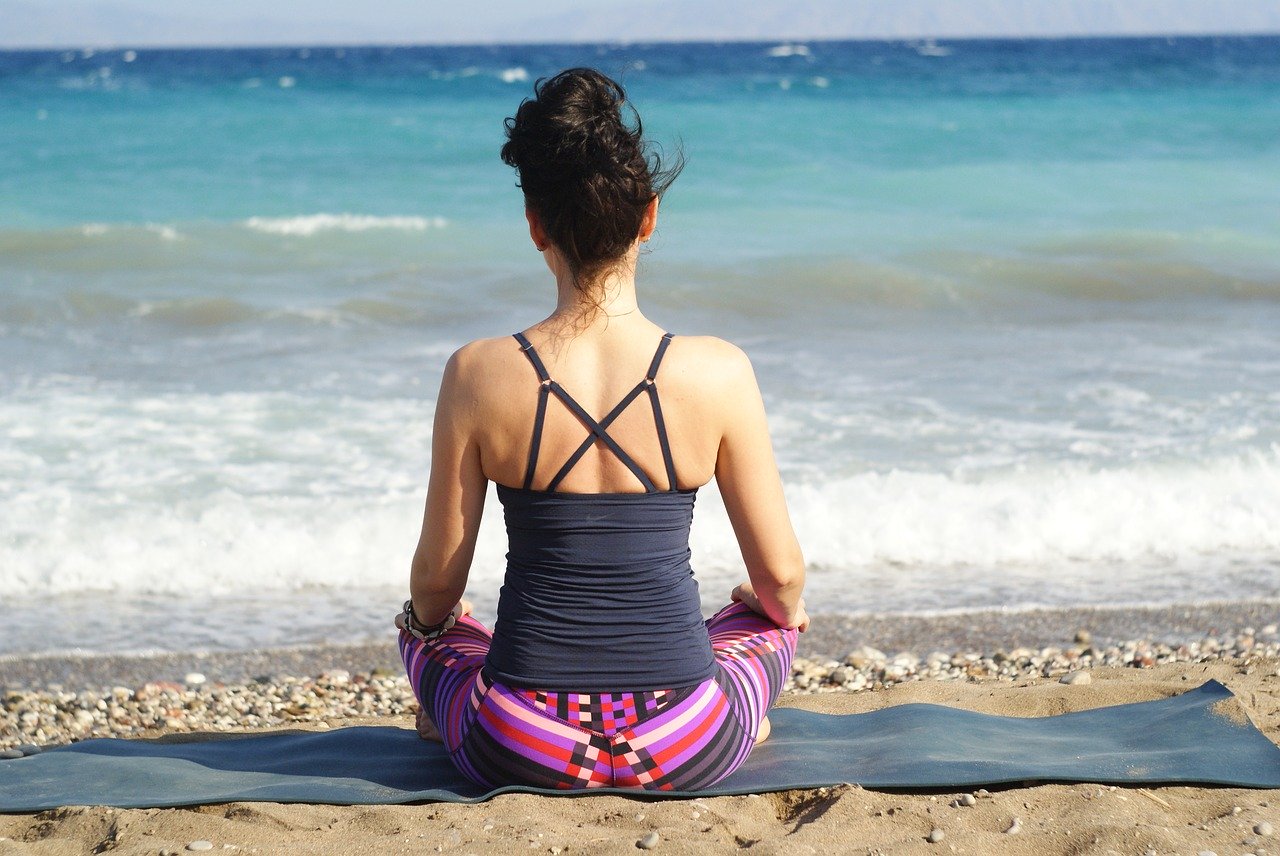Meditation can reduce stress, anxiety, and help you feel happy. All you have to do is give it a go.
A 2011 study by the University of Sydney revealed that on average, people who had practiced meditation for more than 2 years had 10% better mental health and had a better sense of happiness and well-being than those who didn’t.
A whopping 90% of illnesses are caused or affected by stress, something that can be managed by practicing the art of meditation. Meditation increases serotonin which is linked to happiness and self esteem, as well as dopamine, an anti depressant.
It also increases melatonin which helps you to get a better sleep at night, strengthens your immunity and helps to fight off cancer.
“Meditation increases serotonin which is linked to happiness and self esteem, as well as dopamine, an anti depressant.”
In short, meditation is mind training. It works by working, refining and developing the mind. The mind and the body are interrelated, and the mind has a significant effect on the body. Celebrities including Miranda Kerr, Gwyneth Paltrow, Kate Hudson and Gisele Bundchen swear by it.
“The purpose of meditation is for the health and growth of individuals and the environment” says Dr Paula Watkins, a clinical Psychologist at The Happiness Institute, who specialises in teaching meditation.
“It has been proven to give the body a deep level of rest and when your body relaxes, your heart rate and blood pressure decreases, your liver and gall bladder settle down and your large and small intestines and kidneys relax. Resting helps to heal our body and just 20 minutes of meditation are equivalent to several hours of a deep sleep.
“If every 8 year old in the world is taught meditation, we will eliminate violence from the world within one generation.” ~ Dalai Lama
The initial benefits of meditation can be experienced within the first session and three months of a regular meditation produces changes in the brain, where parts becomes more active. So how exactly does this work? Dr Watkins explains:
“Meditation acts directly on the brain and nervous system. It begins by stimulating the parasympathetic nervous system (the opposite of our fight and flight response). Regular meditation also results in actual brain changes particularly in the frontal cortex – the ‘CEO’ of our brain.
Changes include increased blood flow and greater tissue density. This means improved cognitive functioning – memory, attention and focus – as well as greater body awareness, self awareness and regulation of emotion”.
“Resting helps to heal our body and just 20 minutes of meditation are equivalent to several hours of a deep sleep.”
Many people struggle with meditation due to the misconception that there is one specific “state” they need to be in order to meditate correctly, this is not true. It is a common misunderstanding that you need to completely “switch off” all of your thoughts.
However Dr Watkins explains that thoughts are not the problem, it is getting caught up in them that is the issue. She explains that we need to see thoughts for what they are and let them pass through, “Thoughts are a basic function and it is impossible to stop them completely. The challenge lies with learning how not to be so reactive to the thoughts and understanding that we are not chasing after a through free mind”.
Another common misconception is that there is a correct “technique”, Dr Watkins reassures that there is no correct or incorrect technique when It comes to meditating and don’t be afraid of trying different techniques, take time to figure out what you are drawn to and what fits your personality.
Take away the a anxiety and fear and keep in mind that meditation is a slow process, Dr Watkins uses the analogy of running, “if you have heard about the benefits of running and you decide to take it up, you wouldn’t start with 20 minute jogs per day. You ease into it starting with 3 minutes and working your way up in small increments”
“There is no correct or incorrect technique when it comes to meditating. Don’t be afraid to try different techniques.”
Lionell Pack, a 32 year old software developer has recently taken up meditating; having self-taught himself through e-books and online guides “it’s been an on-again off-again practice that I’m really trying to make a consistent part of my life.
I’ve been meditating for about six months, with weeks where I’ve barely missed a day, and other weeks where I haven’t meditated at all […] Even though I’ve been irregular about it, I’ve found that over the past few months, it’s noticeably lifted my mood, improved my concentration, and helped me to deal with stressful situations more philosophically”
When practicing meditation the majority of people are looking for peace of mind, freedom from negative emotions, and a deeper connection to themselves and to the world.According to Carolyn Gowan, meditation expert and author of stillyourmind.com.au, “Meditation is a gift you give yourself to manifest and attract everything you want”.
Bondi Beauty’s 6 tips for introducing meditation to your life:
- Make a date: Find a place you can use at the same time every day to meditate whethere it is a corner of your bedroom or an entire room. Make the atmosphere inspiring and calming as possible, light a candle, place some fresh flowers or light some insience.
- Get Comfortable: Sit in a comfortable position with back support, having a sore bottom, arms or legs will interrupt the process. Wear loose fitting clothes and take off your shoes.
- Prepare: Coax yourself in with some gentle yoga stretches and breathing exercises to calm your body
- Breathe : Close your eyes and start with 6 or 7 “power breaths” which are slow, long deep breaths to release the thoughts running through your mind. Repeat “om” or “so-hum” to help any thoughts that keep popping back drift away,
- Keep calm: The whole experience is about you. Don’t let yourself think that you are “doing it wrong”, remain in the present moment and don’t over analyze the experience
- Slow and steady: In the beginning start with 5 minutes a day and slowly build up your skills. Everyone is different and it takes time to feel what is best for you.
BB Top tips for switching off:
- Breathe deeply into your stomach
- Embrace gentle exercise such as yoga and tai chi
- Keep a journal of your experience and what you are currently focusing on to help you listen to yourself
- Turn off all distractions – that means switching off the TV and keeping your smart phone well away from you
- Play some calming music to help ease yourself into a relaxed state
- Allow yourself as much time as you need. if you are rushing yourself and in a hurry, it won’t work.
- If you find your mind wandering resist the temptation to follow the thought.
Meditation sites we like:
meditation.org.au
stillyourmind.com.au
thehappinessinstitute.com.au














